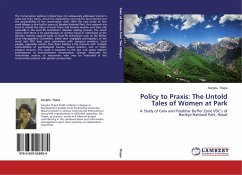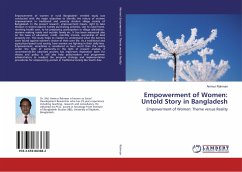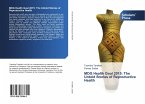The Conservation policies in Nepal have not adequately addressed women's roles and their issues, which has implications not only for local women but the sustainability of the conservation itself. With the case study of two small villages in the buffer zones of Bardiya National Park, this research has tried to unfold the status of local Tharu and Sonaha women and their role especially in the local PA institutions' decision making process. The result shows that there is no participation of women (local or otherwise) at the decision making regional body of local PA institutions such as the Buffer Zone Management Committee, albeit their negligible participation at the ward and VDC level users committees with marginal positions. Local people, especially women have been leading a life insecure with multiple vulnerabilities of psychological trauma, sexual violence, and at times, physical tortures. The study is targeted to the law and policy makers, professionals in environmental conservation, change advocates for reformative actions; or researchers who may be interested in the conservation policies with gender perspectives.








